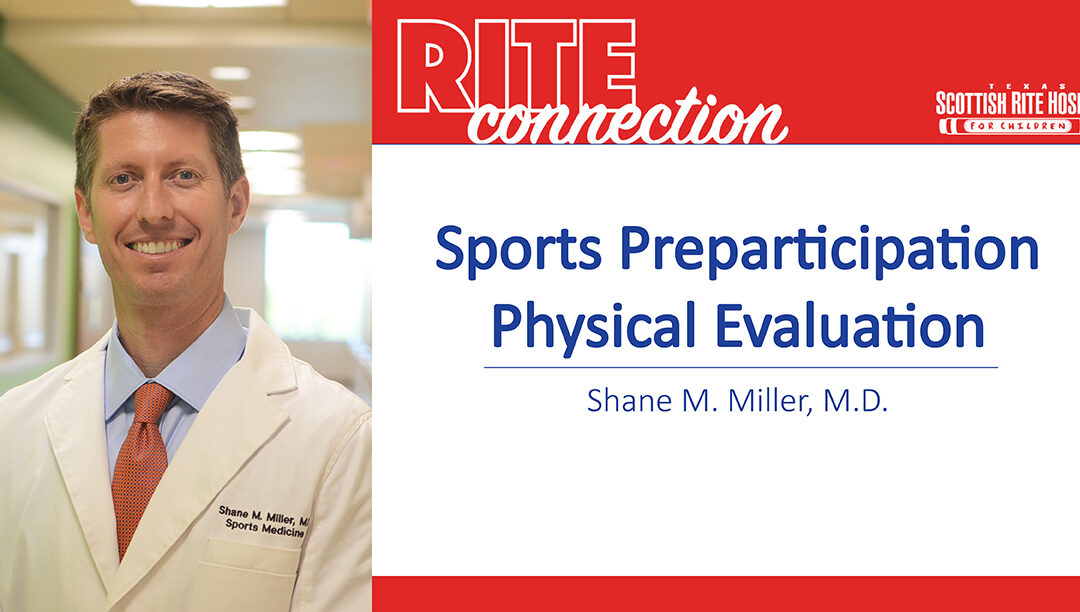
Sports Preparticipation Physical Evaluations: Why Are They Important?
Overview of presentation from a Coffee, Kids and Sports Medicine lecture.
Every year, almost 60 million children and adolescents run onto their respective fields, courts and rinks to participate in organized sports in the United States. To ensure the safety of these young athletes, almost all states require some level of sports Preparticipation Physical Evaluation (PPE), which is meant to screen athletes for injuries, illnesses or factors that may put them or others at risk.
“The primary objective is to screen for conditions that may be life-threatening, disabling or may predispose to injury or illness,” says Shane M. Miller, M.D., a sports medicine physician at Scottish Rite for Children Orthopedic and Sports Medicine Center in Frisco. “A PPE can also serve as a valuable health care entry point for many young athletes and help the physician determine the general health of the child.”
Miller says an extremely important aspect of a PPE is a thorough medical history for the athlete and his or her family. An accurate medical history can be instrumental in detecting 88% of medical conditions and 67% of musculoskeletal conditions. Without a reliable medical history, the source of an issue may be more difficult to identify. It is estimated that less than 40% of forms completed by an athlete correlate with those completed by their parents. Therefore, the parent or guardian should contribute to the history every time.
Questions to enhance a medical history discussion during the PPE:
- Have you ever had an injury to a bone, muscle, ligament or tendon that caused you to miss a practice or a game?
- Have you ever had a head injury or concussion?
- Has anyone in your family died of heart problems or passed away suddenly before age 50?
- Have you or anyone in your family had a heart condition diagnosed?
- Have you ever passed out or nearly passed out DURING or AFTER exercise?
- Have you ever had discomfort, pain, tightness or pressure in your chest, or does your heart ever race or skip beats (irregular beats) during exercise?
Many organizations and schools require a PPE or health clearance for youth formally participating in sports. Since the intent is to enhance the safety of sports participation, it should become an integral part of the health screening exams for any active patient. Miller reports that a very small number of athletes are denied participation from their sport following a PPE.
“The PPE is a screening tool based on the principles of prevention and education,” Miller says. “It is okay to require further evaluation prior to clearance—that evaluation can establish the foundation for a trusting relationship between physician and athlete that can help keep the athlete healthy and safe throughout their athletic career.” In fact, 3-13% of athletes will require further evaluation.
Common reasons for further evaluation:
- Chronic ankle sprains or other previous injury
- Signs or symptoms of overuse injury
- Recent or multiple concussions
- Concerns of under fueling for sports participation
- Recurrent stress injuries or fractures
- Cardiac – concerning heart murmur, symptoms or family history
The fifth edition of the American Academy of Pediatrics’ text on Preparticipation Physical Evaluation is available now on the AAP website. The fifth edition includes new chapters on transgender athletes, female athletes, mental health and incorporating PPE into routine health supervision care.
